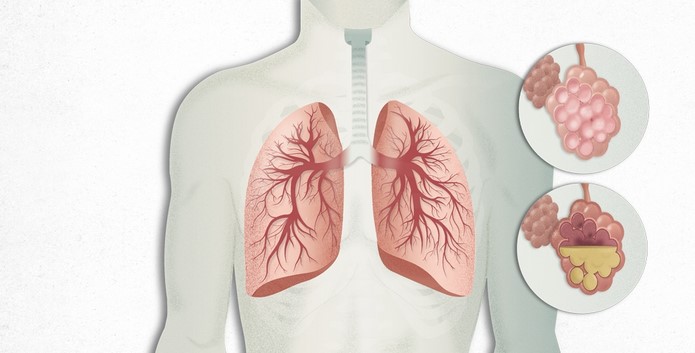Stage 3 COPD: Symptoms, Treatment, and Quality of Life

Stage 3 COPD, or chronic obstructive pulmonary disease, is a progressive lung disease that affects millions of people worldwide. It is characterized by a gradual decline in lung function, leading to difficulty breathing, coughing, and other symptoms. Treatment for Stage 3 COPD typically includes medications, lifestyle changes, and oxygen therapy. While there is no cure for COPD, these treatments can help improve quality of life and slow the progression of the disease. In this article, we will discuss the symptoms, treatment, and quality of life associated with Stage 3 COPD.
Understanding the Symptoms of Stage 3 COPD and How to Manage Them
Stage 3 COPD, or chronic obstructive pulmonary disease, is a serious and progressive lung condition that can cause a variety of symptoms. It is important to understand the symptoms of Stage 3 COPD and how to manage them in order to maintain a good quality of life.
Common Symptoms of Stage 3 COPD
The most common symptoms of Stage 3 COPD include shortness of breath, wheezing, chest tightness, and coughing. These symptoms can be exacerbated by physical activity, cold air, and other triggers. Other symptoms may include fatigue, weight loss, and swelling in the ankles, feet, and legs.
Managing Symptoms of Stage 3 COPD
The best way to manage the symptoms of Stage 3 COPD is to work with your doctor to develop a treatment plan. This plan may include medications, lifestyle changes, and breathing exercises.
Medications: Your doctor may prescribe medications to help reduce inflammation in the lungs and open up the airways. These medications may include bronchodilators, corticosteroids, and mucolytics.
Lifestyle Changes: Making lifestyle changes can help reduce the symptoms of Stage 3 COPD. These changes may include quitting smoking, avoiding triggers, eating a healthy diet, and exercising regularly.
Breathing Exercises: Doing breathing exercises can help reduce shortness of breath and improve lung function. These exercises may include pursed-lip breathing, diaphragmatic breathing, and abdominal breathing.
Conclusion
Stage 3 COPD is a serious and progressive lung condition that can cause a variety of symptoms. It is important to understand the symptoms of Stage 3 COPD and how to manage them in order to maintain a good quality of life. The best way to manage the symptoms of Stage 3 COPD is to work with your doctor to develop a treatment plan that includes medications, lifestyle changes, and breathing exercises.
Exploring Treatment Options for Stage 3 COPD and Their Benefits
Stage 3 Chronic Obstructive Pulmonary Disease (COPD) is a serious and progressive lung condition that can cause difficulty breathing and other symptoms. Treatment options for Stage 3 COPD can help to reduce symptoms, improve quality of life, and slow the progression of the disease.
The most common treatment for Stage 3 COPD is a combination of medications, lifestyle changes, and pulmonary rehabilitation. Medications used to treat COPD include bronchodilators, which help to open the airways and make breathing easier; corticosteroids, which reduce inflammation in the lungs; and antibiotics, which can help to reduce the risk of infection. Lifestyle changes such as quitting smoking, eating a healthy diet, and exercising regularly can also help to reduce symptoms and improve quality of life. Pulmonary rehabilitation is a program of exercise and education that can help to improve breathing, reduce symptoms, and increase physical activity.
In addition to these treatments, oxygen therapy can be beneficial for people with Stage 3 COPD. Oxygen therapy can help to increase the amount of oxygen in the blood, which can reduce shortness of breath and improve quality of life. It can also help to reduce the risk of hospitalization and improve survival rates.
Surgery may also be an option for some people with Stage 3 COPD. Lung volume reduction surgery can help to reduce the amount of damaged tissue in the lungs, making it easier to breathe. Lung transplantation is another option for people with severe COPD who are not responding to other treatments.
No matter what treatment option is chosen, it is important to work with a healthcare provider to find the best treatment plan for each individual. With the right combination of medications, lifestyle changes, and other treatments, people with Stage 3 COPD can improve their quality of life and slow the progression of the disease.Stage 3 COPD is a serious and progressive condition that can significantly impact a person’s quality of life. Treatment options are available to help manage symptoms and slow the progression of the disease. It is important for those with COPD to work closely with their healthcare team to develop an individualized treatment plan that meets their needs. With proper management, those with Stage 3 COPD can improve their quality of life and enjoy a better quality of life.